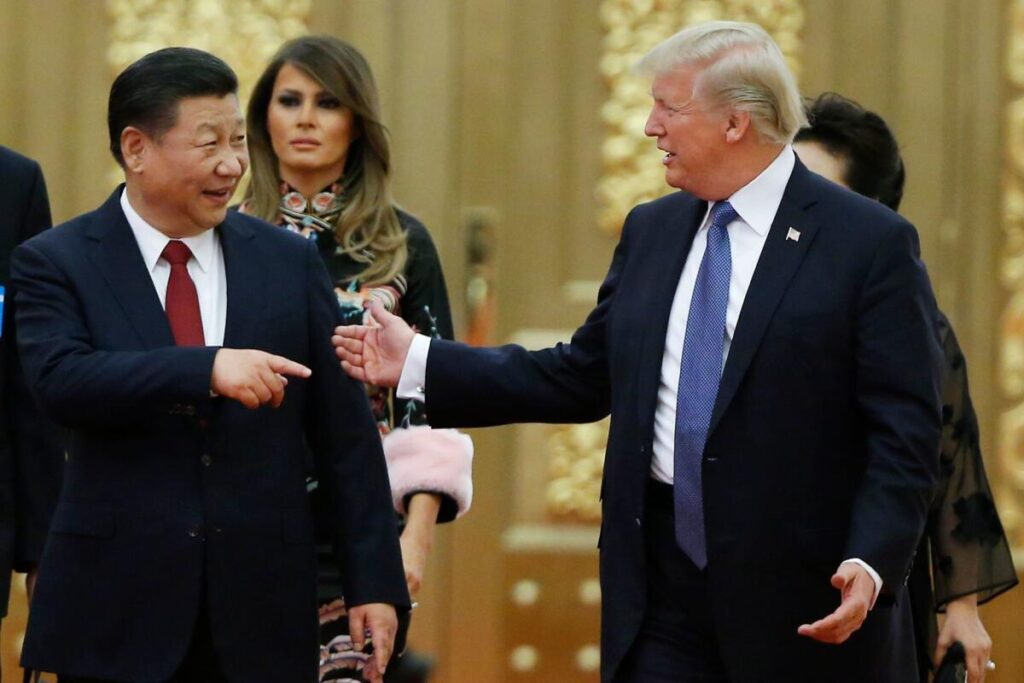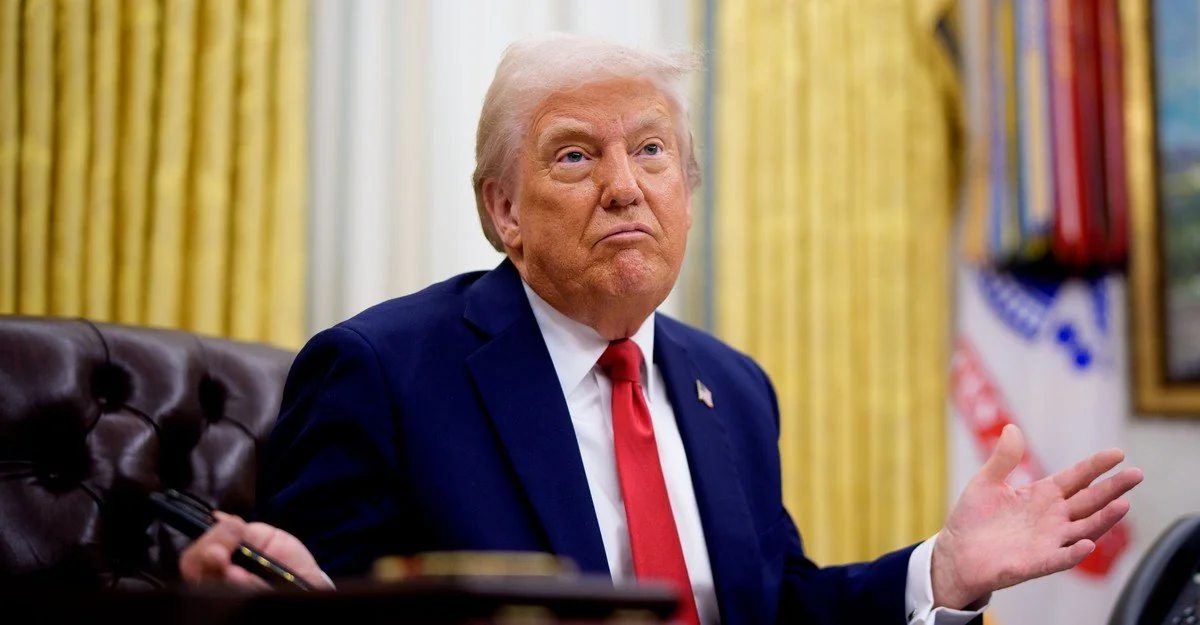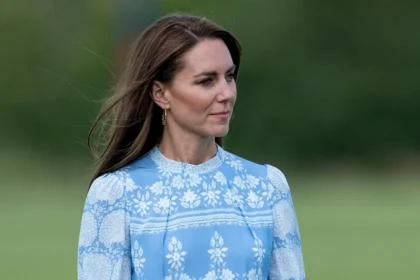Washington, D.C. – U.S. President Donald Trump reiterated his commitment to a “fair deal” with China but made it clear that the next step lies with Beijing, emphasizing that any reduction in tariffs would depend on China’s actions. The ongoing trade tensions between the world’s two largest economies have resulted in a tariff war that continues to escalate.
Trump’s Stance on Tariff Negotiations with China
In a recent statement, President Trump assured the media that the United States is still seeking a “fair deal” with China, a position he has maintained throughout the ongoing trade conflict. When asked if Washington was actively engaging in trade talks with Beijing, Trump responded, “everything’s active,” but he stressed that the decision to reduce tariffs would be contingent on actions from the Chinese government.
Trump also noted that while he maintains a positive relationship with Chinese President Xi Jinping, any tariff reductions would ultimately depend on Beijing’s willingness to make changes. “It depends on them,” Trump said, emphasizing that he hopes both countries can reach an agreement.
Escalating Tariffs and Trade Tensions
The trade war between the United States and China has intensified in recent months, with Trump increasing tariffs on Chinese imports. These levies include a significant 145% tariff on various Chinese products, a move aimed at addressing unfair trade practices and other trade-related issues. In retaliation, China has imposed 125% tariffs on U.S. goods, further escalating the situation.

Despite these high tariffs, President Trump has signaled that a resolution is still possible. However, U.S. Treasury Secretary Scott Bessent has stated that both sides have yet to engage in direct talks about lowering tariffs. “I think both sides are waiting to speak to the other,” Bessent said, clarifying that no unilateral offer had been made by the Trump administration to reduce duties on Chinese imports.
The Need for Tariff De-escalation
Bessent stressed the importance of reducing the high tariffs imposed by both the U.S. and China, calling the current situation unsustainable. He compared the tariffs to an “embargo” and emphasized that a breakdown in trade between the two countries is not beneficial for either side. Bessent suggested that mutual de-escalation of tariffs is possible, though he did not provide a specific timeline for when negotiations might resume.
“There’s no question that the current tariff levels are not sustainable, and both sides are aware that some reduction is needed,” Bessent noted. He indicated that both sides would likely need to move towards mutual de-escalation for discussions to take place.
Trump’s Flexibility with Tariffs
While Trump has been quick to implement tariffs across various sectors, he has also been open to exemptions. Recently, the U.S. granted temporary relief for tech products such as smartphones and chipmaking tools, and Trump may expand these exemptions to include car parts as well. The Financial Times reported that Trump could exempt additional products, including steel and aluminum parts, from some tariffs on Chinese imports.
However, Trump has also stated that he is not considering changes to U.S. auto tariffs at this time. While tariffs on auto imports from China may remain, he noted that levies on Canadian car imports could increase, especially in relation to cars.
China’s Economic Model and the U.S. Trade Imbalance
Bessent also addressed China’s export-reliant economic model, which he described as “unsustainable” and detrimental not only to China but to the global economy. The U.S. administration has voiced concerns about trade imbalances, which it hopes to address through the imposition of tariffs on Chinese goods.
Despite these concerns, Bessent emphasized that “America first does not mean America alone.” He suggested that the Trump administration’s actions reflect a desire for deeper collaboration and mutual respect among trade partners, while also taking aim at policies by other nations that have weakened U.S. manufacturing and compromised national security.
Conclusion: A Long Road Ahead for U.S.-China Trade Relations
While President Trump remains committed to a fair deal with China, the ongoing trade war shows no immediate signs of resolution. Both sides are waiting for the other to take the next step, with Trump maintaining that any tariff reductions will depend on China’s actions. As the situation develops, it remains unclear when negotiations will take place, but de-escalation of tariffs could be key to restoring trade relations between the two economic giants.
The U.S.-China trade conflict continues to have wide-reaching implications, not just for the two countries, but for the global economy. As both sides navigate these complex negotiations, it’s clear that a resolution may require careful negotiation and mutual concessions from both nations.




